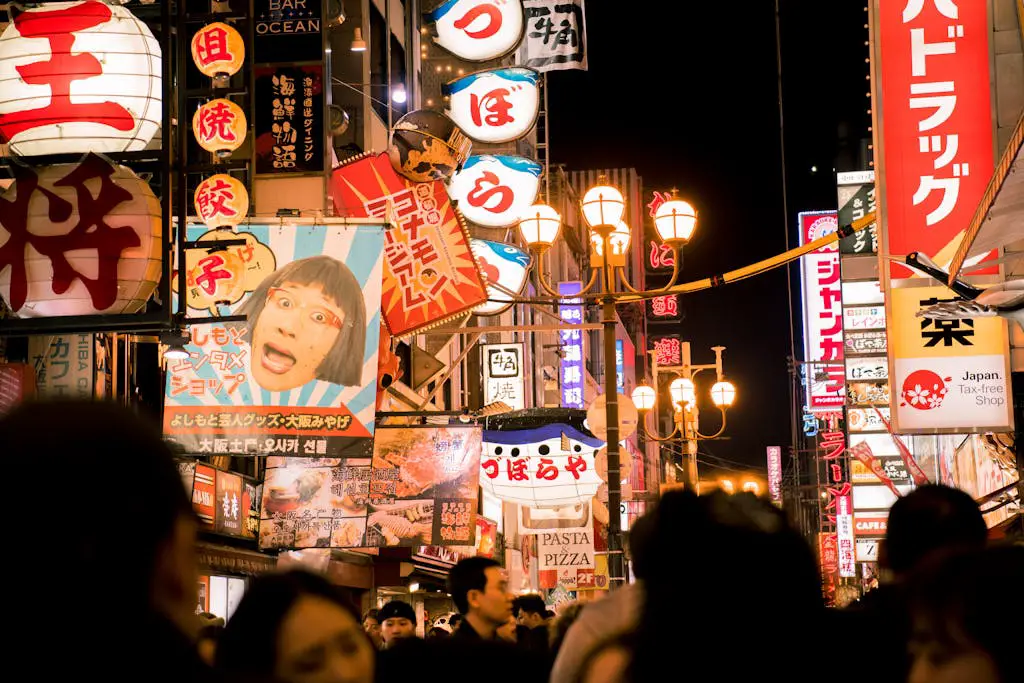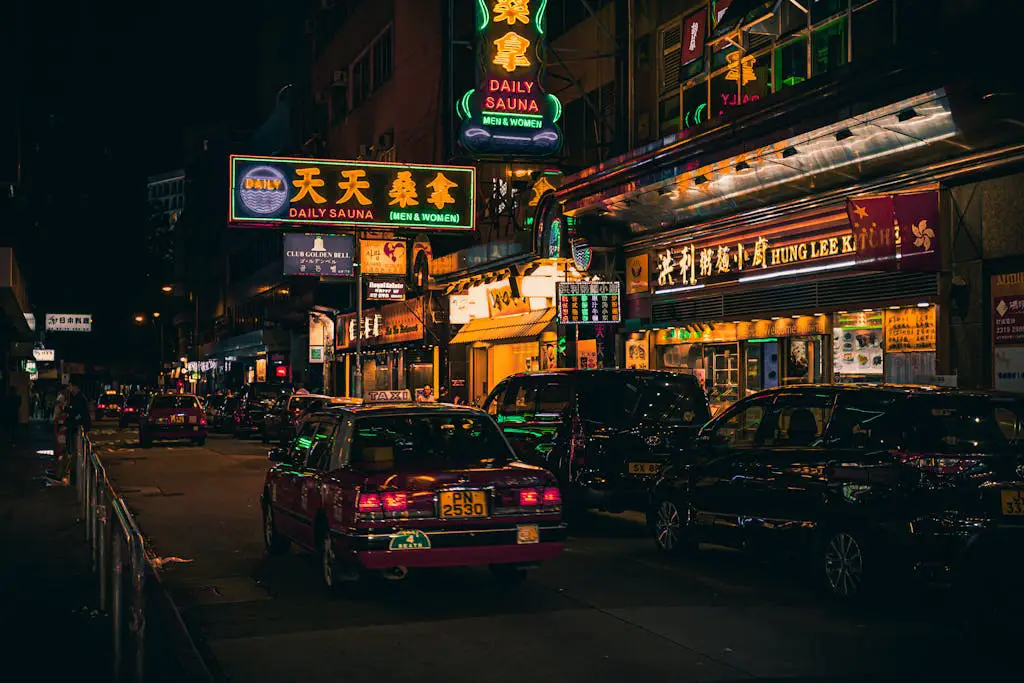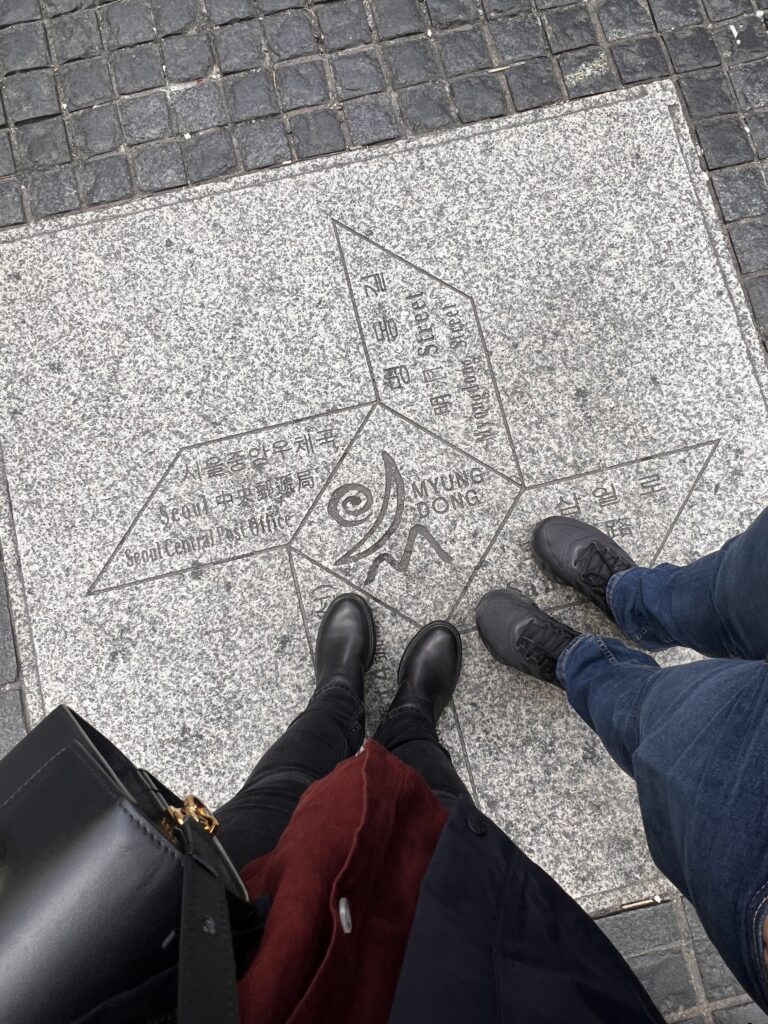19 Useful Cantonese Phrases For Your Trip to Hong Kong
If you are looking for basic and useful Cantonese phrases for your Hong Kong trip, keep reading.
I spent a week in Hong Kong and had a wonderful time. Although being of Asian descent helped me navigate the city, I found that locals were much friendlier when I attempted to speak Cantonese.
It is always easier to get around easily with a phrase or two in your pockets. 🙂
As a child, I enjoyed watching Cantonese movies, such as Kung Fu Hustle and The Legend of the Dragons. My sister and I would pick up random phrases like “mou men tai” and “lei hai bin do.”
Hong Kong was never on my travel bucket list. Still, thanks to my very impulsive decision to book an unplanned trip to Hong Kong with Trip.com (not sponsored), I had to pick up some basic Cantonese phrases to interact with the locals.
I used these phrases frequently during my trips, from the airport, hotels, public transportation, and the night market. So, if you’re interested in learning some basic Cantonese phrases, “hang la” (let’s go)!
Disclosure: Some of the links below are affiliate links. I may receive a small commission if you purchase through my links, at no extra cost to you. I hope you find the information useful and will continue to support me in providing quality articles and travel guides.
Related Travel in Hong Kong Posts:
Learning Basic Greeting Cantonese Phrases

1. Neih hou (你好) – Hello
Let’s start by saying hello. This is a standard greeting widely used in Hong Kong and Macau.
You can use this when you enter a restaurant, greeting the uncles and aunties in the market, the captain of the bus, or simply with the services staff on the ground prior to seeking assistance.
A simple hello goes a long way!
2. Mhgoi (唔該) / Dojeh (多謝) – Thank you
During my first days in Hong Kong, I didn’t realize the usage difference between “dojeh” and “mhgoi.” Some use “dojeh,” and some use “mhgoi.”
So, what is the difference between “mhgoi” and “dojeh” in Cantonese?
I thought it had the same meaning, but my friend who lives in Hong Kong told me that both terms have slightly different usage.
“Dojeh” means “Thank you,” and it is used when you receive something from someone, such as when the market lady receives money from her customers.
“Mhgoi” is “Thank You,” which means thank you for a service, like thanking the waiters when they serve you food. You expected him to serve you, but you’re thankful.
Don’t worry about making mistakes. I’m not Cantonese, and even if I mixed up these two terms (which I think I did most of the time), it’s fine. Most locals are okay with it.
These two terms are really helpful for expressing gratitude in Hong Kong. Locals do put a smile on their faces when you try to speak the local language, and sometimes, unexpected things happen. 🙂
Just like how I received two red envelopes, also known as “angpaos”, from this lovely uncle in the small fishing town of Tai O.
He was selling pearl bracelets. The bracelets were such a gem that I had to buy one.
Despite the language barrier, I bought one and thanked him in broken Cantonese, with all the wrong notation. He was so happy that he smiled from one ear to another ear!
Before we took off, he gave “angpaos” to each one of us. What a lovely man. I was smiling like a little happy monkey. Lucky coin of Tai O 🙂
3. Mhsai (唔駛) – You’re Welcome
Once you are done buying, you can say “mhsai” with a smile. It’s always warmer when accompanied by a smile, and it gives a nice closing to the conversation.
4. Baaibaai (拜拜) – Goodbye
The easiest is to say goodbye, which is very similar to English. You can say bye-bye and stroll along. Most locals understand this and will say bye-bye to you, too.
5. Mm Hoi Si (唔好意思) – excuse me; sorry; I didn’t mean to
“Mh hoi si” is a common way to say excuse me in Cantonese.
It is a very useful phrase that can also be used in different cases, such as:
– To apologize for small matters or minor incidents
– To grab someone’s attention (e.g. asking someone to give way on the bus)
While I was in Hong Kong, I also heard a lot of locals use “mhgoi” to grab my attention. Sort of like saying excuse me and thank you at the same time.
Another more formal word similar to “mh hoi si” is “deui mm jyuu.” This term is mainly reserved for severe offences.

Useful General Phrases to Express Your Feelings
Now that we have covered the basics, let’s explore simple phrases that will elevate your Hong Kong experience.
These phrases are usually used to say yes or no, to compliment the shop owner when the food is good, or to inform others that you are not Cantonese.
6. Ngor mm ming (我唔明) – I don’t understand.
7. Ngor mm wui gong gwong dung wa (我唔會講廣東話) – I don’t speak Cantonese
8. Hou sik (好食) – It’s delicious!
9. Hai (係)/ Mm Hai (唔係) – Yes/no.
10. Mm gan yu (唔緊要) – It’s all right /Never mind/ No worries.
11. Gau ming!(救命!) – Help!
Daily Useful Cantonese Phrases By Category
Now, let’s explore a more specific situation that you’ll encounter, whether it’s in a cha chaan teng, restaurant, or night market. These phrases will work magic.

– Shopping
Hong Kong is obviously a shopping paradise, from the big shopping malls to the street markets. Most of the malls are English-friendly, so you don’t have to worry about it.
However, if you find yourself in the street market, you’ll need to equip yourself with some useful Cantonese phrases since not all the shopkeepers speak English.
Here are a few phrases that saved me a few dollars when I hunt for souvenirs:
12. Gei do cin aa? (幾多錢呀?) – How much is this?
13. Taai gwai la (太貴啦) – Too expensive
14. Peng di la (平啲啦) – Cheaper la
– Restaurant
15. Ngo mm sek chwee yok (mm yam jau) (我唔食猪肉(唔喝酒)) – I can’t eat pork (drink alcohol)
16. Ngo sihk jaai (我食齋) – I am a vegetarian
17. Mai dan, mhgoi! (买单, 唔该) – The bill, please!
18. Yam bui! (飲杯) – Cheers!
Sometimes, I find myself in a local shop where everything is legit in Cantonese, and I don’t know how to order.
My go-to solution is to go on Google Maps, find the place where you are now, and tap on the photos. Many local guides post their reviews and food photos.
Then, all you need to do is pick what you want from the photo and show the picture to the waiter. Most of the time, the waiter will understand what you want to order.
If you are looking for halal food, check out the Have Halal Will Travel article for their top listing of yummy halal food in Hong Kong! I’ve been to a few, and the food was delicious!

– Getting Directions
I rely mostly on my Google map. However, when the time comes, Google Maps can’t exactly show me where the toilets are…
Here are a few useful Cantonese phrases that could get you around.
19. ______ hai bin dou (嗨边度) – Where is ____ ?
Here are some examples:
– chiso hai bindouh? (廁所喺邊度) – Where’s the toilet?
– ba si jam hai bindouh? (巴士站 ) – Where’s the bus stop?
How Do You Swear in Cantonese like a Local?
Okay, before you get too excited, I do not want you to swear in public on your trip, end up in a lot of drama, or get beaten up in an alley.
This is only a sharing to provide you with more information on things you should take note of and the love of the Cantonese language that I’ve picked up along the way from my childhood years in Malaysia.
Swearing in public is not illegal in Hong Kong. However, there are regulated swearing laws in certain places, such as Ocean Park and MTR premises.
Sharing this with you so that you’ll know if someone is angry at you or cursing at you. Here are a few Cantonese swear words you should watch out for while on the streets!
1. Diu
“Diu” is simply the f word. It’s used widely to express disagreement or disapproval. It’s familiar but vulgar.
In Malaysia, my friends, colleagues, and the public can hear Cantonese daily, in addition to Mandarin.
Back in the old days, I’d pick up a few phrases from my friends on certain phrases, for example: Diu nei—F… you or Diu lei lo mo—F… your mother. (This is highly offensive!).
While some terms are used and intended to amuse in certain situations, the terms are offensive and vulgar.
2. Lan
“Lan” means penis and is also one of the few Cantonese profanity used commonly. It has a meaning a bit like a dumbass.
3. Tsat
Another vulgar word that means impotent penis. “Tsat” is mainly used by the youth and can carry a few meanings such as ugly, embarrassing or shameful, for example: very embarrassing – 好柒(ho tsat).
Will You Survive Hong Kong?
Of course, you will. Hong Kong blew my mind away, and I am sure that you’ll definitely enjoy bits and corners of this beautiful country.
Despite the language barrier, I managed to get by with most of the phrases above, except the swearing part! The travel phrases above are sufficient enough to get you around without any problem.
However, it can be slightly challenging for local restaurants. Usually, I will sort into sign language and show pictures in Google Reviews of what I’d like to have, and they will understand.
Most trendy cafes and restaurants have staff that speak English, but even if they don’t, they will indeed have the menu in English.
I do hope that this useful Cantonese phrases list will help you to get around Hong Kong.
Don’t forget to visit the night markets on Temple Street, Mong Kok or Sham Seui Po to practice your Cantonese and secure awesome local souvenirs! 😉
Happy traveling to Hong Kong <3
Recommended Posts:







